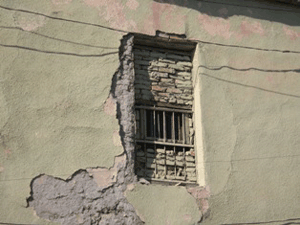 Shorena Kakabadze, Kutaisi
Shorena Kakabadze, Kutaisi
“Everyone knows that the UN Committee on the Rights of the Child is concerned about state level policies and legal amendments in the field of juvenile justice among many countries. However, in spite of the body of knowledge of such rights and supporting legislation at the international level, there are numerous signs indicating that governments violate regularly violate children’s rights. Generally, simple decisions can be rather dangerous, even leading to the new cycle of violence, even if the intention was to make a positive contribution,” says Dainius Puras (the UN Committee for the Rights of the Child) in his recent report.
Georgia is among those “many countries” that violate children’s rights on a regular basis. It is indicated in the report that Georgia must take to a wide range of alternative measures to take the children out of juvenile justice system.
The amendments were introduced into the Criminal Code of Georgia on May 23, 2007. According to these amendments the age of criminal responsibility was reduced from 14 to 12 years. The Criminal Procedural Code and the Georgian Law on Imprisonment were also amended. The amendments have entered into force as of July 1, 2008. However, the Georgian Parliament recommended to the Georigan courts not to use these amendments in actual practice, at least until January 1, 2009, or at such time a corresponding infrastructure as been established within the country.
Until then we decided to find out in what conditions the juveniles are tried, what kind of “position” the Georgian justice has towards the juvenile criminals and in the end, what the court verdicts aim at.
The Human Rights Center implemented the courts’ monitoring in Kutaisi. During our observation from January 1, 2008 to July 1, 2008 a total of 12 juveniles were tried in Kutaisi City Court and 8 - in Kutaisi Court of Appeals. The juveniles ranged in ages from 15-18 years old. Predominately they came from socially excluded and economically vulnerable families.
“The cases were mainly on theft, attempted theft, burglary, and robbery, illegal purchase, keeping and carrying of various firearms. The majority of cases ended up with plea bargaining without having to revert to traditional court discussions and the sharing of essential information about the accused juvenile. The courts held only 1 or 2 hearings before judgment was passed in these cases. They adjudicated insufficiently and then plea bargaining was affirmed by the judge. The judges never rejected the prosecutor’s motion on plea bargaining,” stated Nana Chapidze, the lawyer of the Human Rights Center’s Kutaisi Office.
Not even one accused from the 20 cases the Human Rights Center’s Kutaisi Office monitored in Kuaisi City Court and the Court of Appeals was acquitted.
“According to the monitoring results, we assume that there is a tendency of using plea bargaining and fines against juveniles in Georgian courts. This basically contradicts the legal practice and the recommendations that are in place for the protection of children’s rights, which has been established by the European Union and member countries of the UN. The amended Georgian legal system and court standpoint towards juvenile criminals contradicts the demands of the Convention on the Rights of the Child as well, and especially the requirements of the Articles 3, 6 and 12. The Article 12, the countries of new democracy pay much attention to, is on the right of the child to be heard and understood,” states Nana Chapidze.
Despite the demands of the international organizations and the results of our monitoring, the Georgian Government continues violent politics towards juveniles. The government does not even try to be more humane to juveniles and protect essential and mandated children’s rights.



